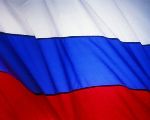31 Oct 2011 | Europe and Central Asia, Index Index, minipost, News
A 30 October report concerning the work of a Russian human rights group working in Chechnya was pulled off of the air on NTV, one of the nation’s largest federal channels. The segment covering the work of Joint Mobile Group with the case of Islam Umarpashaev, a Chechen allegedly kidnapped and tortured by state forces, was broadcast in Eastern Russia, but blocked in the rest of the country.The Joint Mobile Group has been campaigning for justice and a fair investigation of the kidnapping and torture of Umarpashaev by Chechen law enforcement officials in 2009.
3 Oct 2011 | Index Index, minipost
Forty people have been arrested in Moscow during a gay pride rally. The rally, which took place on 1 October was one of the few gay rights events which had been approved by authorities. Participants in the rally found themselves faced with protesters, some of whom threw tomatoes at them. Authorities are trying to work out how many of those arrested were involved in the rally, and how many were trying to stop it. Attempts to hold gay pride marches in Russian cities in the past have been blocked by police, church activists and football fans. The arrests follow reports that Russia’s Arkhangelsk region has adopted a draft law banning all events promoting homosexuality, including Gay Pride marches.
2 Aug 2010 | Index Index, minipost, News
A ruling to ban YouTube and three online libraries in the Russian city of Komsomolsk-on-Amur will be enforced on 3 August. The video-sharing website will be blocked because of a nationalist video “Russia for the Russians,” which has been listed as extremist content. The online libraries (Lib.rus.ec, Thelib.ru and Zhurnal.ru) have been blocked for carrying Adolf Hitler’s Mein Kampf.
2 May 2008 | Comment
 The Russian authorities are taking a heavy-handed approach to web monitoring, writes Maria Eismont
The Russian authorities are taking a heavy-handed approach to web monitoring, writes Maria Eismont
‘Error. The website you’ve requested either doesn’t exist, or is overloaded.’ This announcement greeted visitors to the electronic version of Russian independent regional weekly Vyatskiy Nablyudatel, a Kirov newspaper well known for its editorial independence and investigative enterprise, after its website was closed by its Internet provider on April 22. Khostingoviye telesistemi, the Moscow-based ISP, claimed it received an official letter from the Kirov regional police department saying the website contained ‘extremist’ opinion in the readers’ forum, insulting the vice-governor and the government of the region. ‘If you are the owner of this site and think this is a mistake please contact the technical support service,’ continued the announcement on the website.
The law on ‘counteracting extremist activity’ has broadened the definition of extremism to include media criticism of public officials, and carries a custodial sentence of up to three years for journalists, along with the suspension or closure of their publication. It was passed by parliament despite protests from human rights groups, who claimed that the vague language of the law would allow public officials to interpret it widely and use it to target their critics. The Russian prosecutor’s office is currently calling for the Internet to be placed under the same rules as print media.
(more…)

